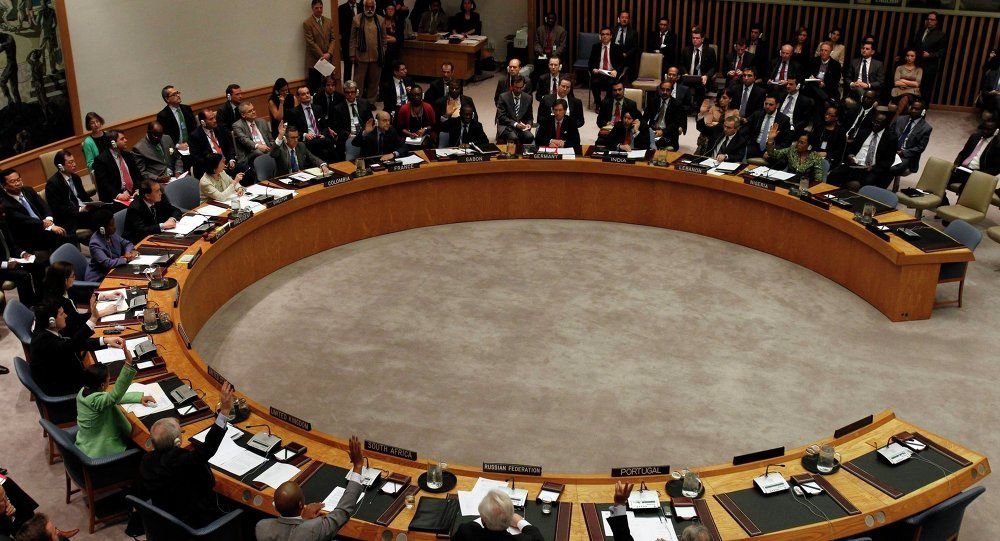U.N. refugee chief opposes ‘safe zones’
Daily Star
BEIRUT: The U.N.’s top official on refugees pushed back against a proposed initiative that has gained recent traction to create “safe zones” in Syria for refugees, saying the country was “not the right place” for the initiative.
“Let’s not waste time planning safe zones that will not be set up because they will not be safe for people to go back,” said Filippo Grandi, the U.N. High Commissioner for Refugees.
U.S. President Donald Trump has floated safe zones as a substitute for resettling refugees in the United States and elsewhere around the globe.
The president explored schemes with Jordanian King Abdullah II in a meeting in Washington, D.C. Thursday. Jordan is host to some 650,000 Syrian refugees.
Turkey and Lebanon, which both border Syria, are also pushing for safe zones across their borders. The two countries host 3.75 million refugees between them.
Grandi cited terrorism and the fragmentation of Syria and its warring parties as obstacles to creating working safe zones in the country.
Damascus has expressed its concern over the proposals, saying they would have to be set up in coordination with the Syrian government.
Trump plunged the international refugee system into crisis last week when he issued an executive order forbidding refugees to enter the U.S. for 120 days.
Grandi called the executive order a “dangerous weakening” of the established international norms to protect refugees.
Meanwhile, Turkey hosted talks with Syrian opposition members Friday ahead of U.N.-backed negotiations with the Damascus government in Geneva later this month.
Participants included political and military representatives of the Syrian opposition such as Riad Hijab of the High Negotiations Committee, and Syrian National Coalition President Anas al-Abdah, according to Turkish Foreign Ministry officials.
Those attending denounced “federalism” as a solution for war-torn Syria and spoke out against a “new constitution, autonomy and federalism.” They also affirmed that those opposing Syria’s unity have no place in Geneva, according to Turkish officials who requested anonymity.
A Syrian Kurdish group recently in Moscow had proposed creating federal units in Syria to resolve the war. Ankara regards the Syrian Kurds as an extension of its own Kurdish insurgency.
In Syria, opposition activists and Daesh (ISIS) said Friday that U.S.-led coalition aircraft were behind airstrikes that destroyed the main pipeline supplying water to the northern Syrian city of Raqqa, the de facto capital of the militant group, as well as two bridges linking it with the southern countryside.
The coalition has been targeting Daesh in the area for more than two years and U.S.-backed Kurdish-led fighters have been on the offensive in nearby areas, mostly north of Raqqa. The attacks on Raqqa are similar to those conducted in Iraq late last year when Iraqi forces began their offensive to capture the city of Mosul from the extremists. Destroying bridges makes it difficult for Daesh to move fighters but many complain that the adverse effects are worse for civilians.
In a statement Friday, the U.S.-led coalition said it carried out 21 strikes near Raqqa, destroying 53 oil barrels, 39 oil storage tanks, four oil wellheads, four tunnel entrances, two tunnels, as well as damaging eight supply routes.
Syrian state news agency SANA and a Daesh-affiliated website said early Friday that the city’s main water pipeline was damaged in an airstrike. It added that two other bridges outside of the city were also hit.
Raqqa is being slaughtered silently, a local media collective, criticized the destruction of the two bridges and the cutting off of the city’s water supply, saying that such acts are “absolutely unacceptable.” One of the bridges carried the water pipeline. The activist-operated group later said the city’s water flow had been partially restored after militants fixed the pipeline.
The anti-Daesh group blasted the coalition, saying it’s trying to “besiege the civilians of Raqqa by demolishing bridges and destroying the infrastructure.”
The Britain-based Syrian Observatory for Human Rights reported clashes between Daesh fighters and the U.S.-backed Kurdish-led Syria Democratic Forces north of the city. It said the U.S.-led coalition has been providing air cover to SDF fighters during Friday’s fighting.
In Damascus, the Russian Embassy came under shell fire Thursday and Friday but did not incur casualties, the Foreign Ministry in Moscow said, blaming an attack by “terrorists.”
One shell fell about 20 meters from the embassy’s main entrance and the other hit the ground inside the compound, between offices and a residential building, it said in a statement.

/image%2F0780719%2F20170521%2Fob_98bcb0_medias11.jpg)



/image%2F0780719%2F20240412%2Fob_a64a97_abdoulaye-maiga.jpg)
/image%2F0780719%2F20231220%2Fob_85dd47_dgse1.jpg)
/image%2F0780719%2F20231130%2Fob_0afafe_sarkozy-ouattara.jpg)
/file%2F0780719%2F20230325%2Fob_e255be_paul-rusesabagina.webp)
/file%2F0780719%2F20240423%2Fob_9d9ee7_burkhard-macron1.webp)
/image%2F0780719%2F20240423%2Fob_a23214_soudan-armes.jpg)
/image%2F0780719%2F20240423%2Fob_7197ea_russia-syria.jpg)
/file%2F0780719%2F20240423%2Fob_515711_unrwa2.webp)
![[Vidéo] [1994, Rwanda] La France a livré des armes aux génocidaires (Survie)](https://image.over-blog.com/Qr2Tlyp0K4rq7udRXLdcP-VPLho=/140x112/smart/filters:no_upscale()/image%2F0780719%2F20240423%2Fob_4eae3b_mitterrand-balladur.jpg)
/https%3A%2F%2Fi.ytimg.com%2Fvi%2FN3KPa_OfbEw%2Fhqdefault.jpg)
 Haut de page
Haut de page